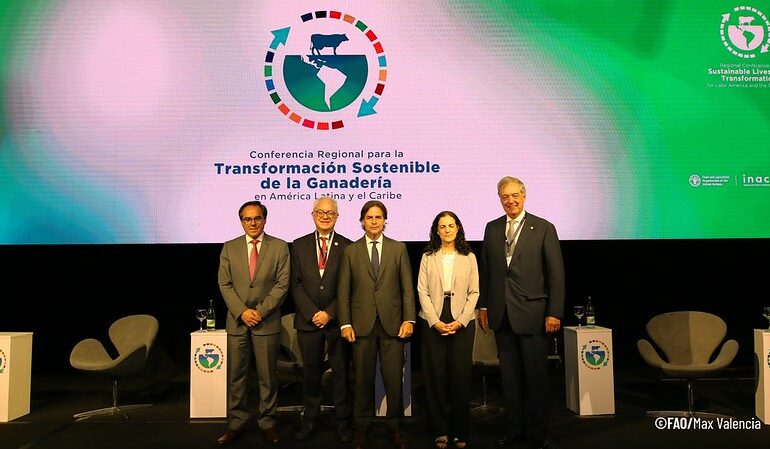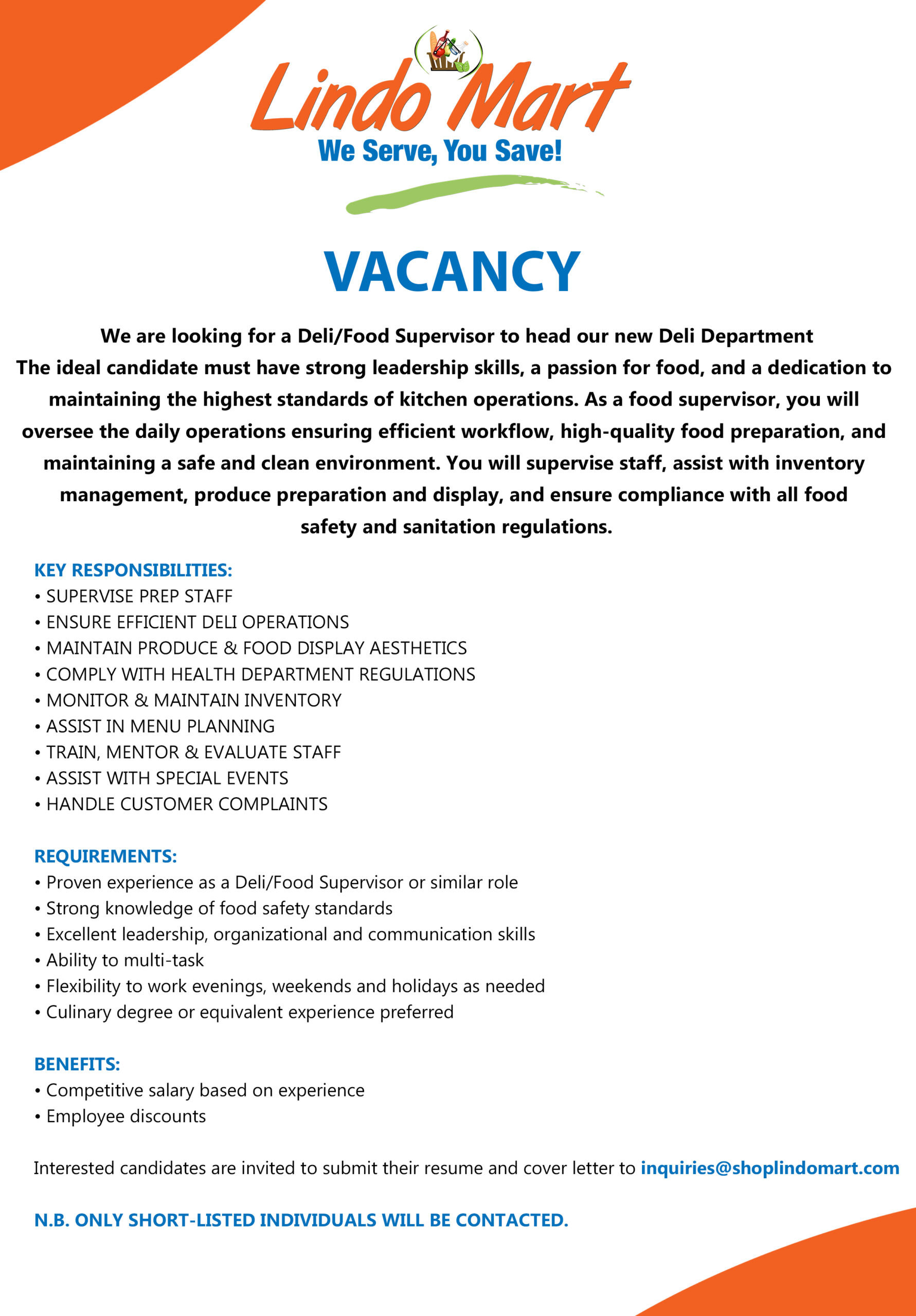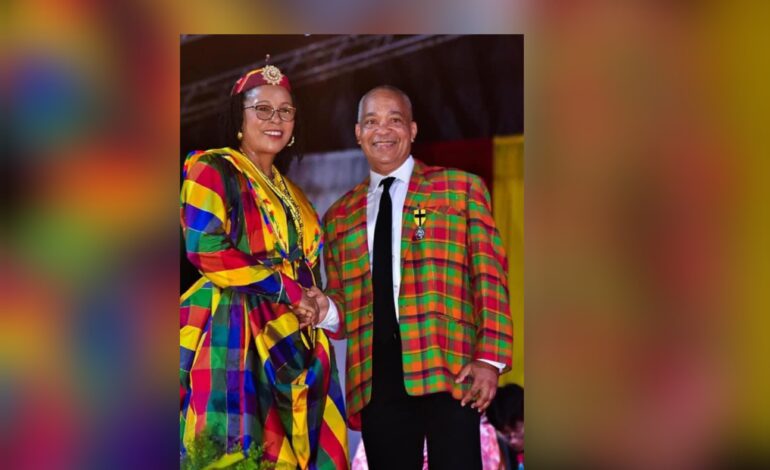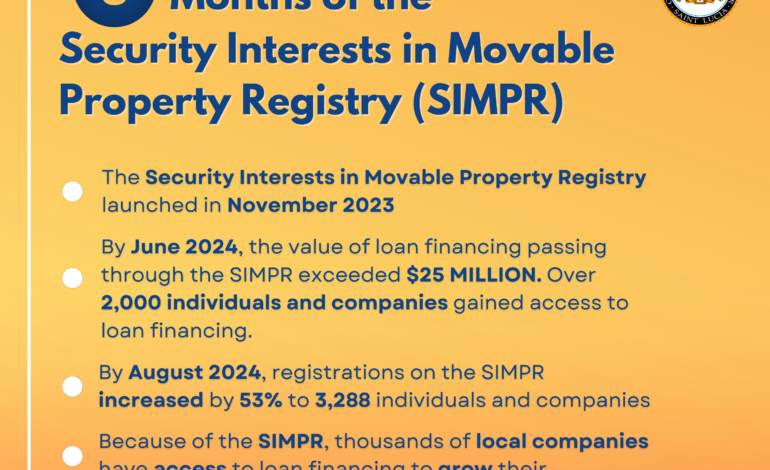
The Food and Agriculture Organization of the United Nations (FAO) reaffirmed its commitment to achieving Better Production through the sustainable transformation of livestock production, an activity on which 64.5% of the rural population in Latin America and the Caribbean economically depend.
The First Regional Conference for the Sustainable Transformation of Livestock, held in Uruguay on November 5-6, aims to engage regional stakeholders in promoting more innovative, resilient, sustainable, and efficient production systems that contribute to food and nutritional security while reducing environmental impacts across various livestock production chains. This activity is especially promising as the region accounts for 28% of global animal production and produces 23% of the world’s beef and 21% of poultry, despite comprising only 8.5% of the global population.
The event, which responds to the agreements made at the World Conference on Sustainable Livestock Transformation held at FAO headquarters in Rome last year, was inaugurated by the President of Uruguay, Luis Lacalle Pou, and FAO’s Assistant Director-General and Regional Representative for Latin America and the Caribbean, Mario Lubetkin.
Representatives from 33 Latin American and Caribbean countries gathered to address the challenges and opportunities for sustainable livestock in a global context of growing demand for meat products, which is expected to rise by 20% by 2050, alongside the need to mitigate the sector’s environmental impact.
During the event’s opening, President Lacalle emphasized the importance of family farming in livestock production, stating, “Small subsistence farmers are sometimes overlooked, which is why it’s crucial that the economy not only focuses on growth and profit but also on including small family farmers. We need to tie environmental issues to the economy.”
FAO Director-General QU Dongyu stated, “I wish to reaffirm FAO’s commitment to continue working together to promote sustainable development in the livestock sector across Latin America and the Caribbean. Livestock is essential for economic stability, food security, and cultural heritage. Livestock production must continue providing safe, nutritious food while minimizing environmental impacts, strengthening resilience in all aspects of our agri-food systems.”
Mario Lubetkin highlighted the importance of animal-source foods for food security and human health by providing essential nutrients such as proteins, iron, and vitamins necessary for development and nutrition in a region where food insecurity affects 28% of the population.
“Progress in sustainable livestock in our region strengthens the relationship between economic development, agricultural sustainability, and environmental preservation,” Lubetkin stated. He also urged countries to foster an efficient, inclusive, and resilient livestock model tailored to local circumstances.
Regional and global milestone
The First Regional Conference on Sustainable Livestock in Latin America and the Caribbean represents a regional and global milestone in commitment to transforming the livestock sector. At the event, FAO reaffirmed its dedication to providing technical support and promoting effective policies for sustainable livestock in the region, in line with its role as the Technical Secretariat of the Commission on Livestock for Latin America and the Caribbean (CODEGALAC).
The inaugural event was also attended by Uruguay’s Minister of Environment, Robert Bouvier; Minister of Economy and Finance, Azucena Arbeleche; and Minister of Livestock, Agriculture, and Fisheries, Fernando Mattos; along with Thanawat Tiensin, Director of FAO’s Animal Production and Health Division.
The event included high-level representatives from nine countries in the region, among them Sergio Iraeta, Secretary of Agriculture of Argentina; Carlos Fávaro, Minister of Agriculture of Brazil; Esteban Valenzuela, Minister of Agriculture of Chile; Fernando Vargas Pérez, Deputy Minister of Costa Rica; Maynor Estrada and Johana Jacomé, Undersecretary of Livestock Production of Ecuador; the Minister of Agriculture of Guatemala; Zulfikar Mustapha, Minister of Agriculture of Guyana; Julio Berdegué, Secretary of Agriculture and Rural Development of Mexico; Carlos Giménez, Minister of Agriculture of Paraguay; Marcelo González, Deputy Minister of Livestock of Paraguay; and Lucrecia Rodríguez Peñalba, Executive Secretary of the Central American Agricultural Council (CAC).







